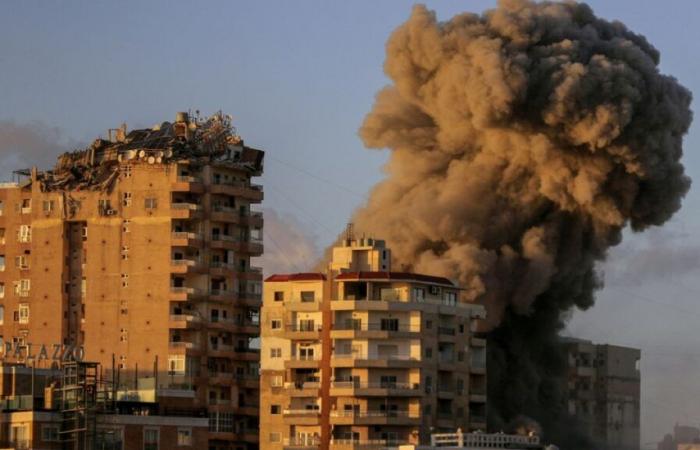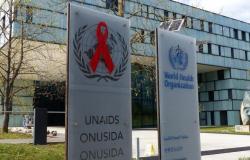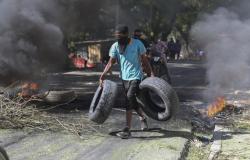Israeli strikes in the Gaza Strip have killed twelve people in recent hours, Palestinian medical officials said on Sunday.
ADVERTISEMENT
In recent hours, Israeli strikes have killed six people in Nuseirat and four others in Bureij, two refugee camps. Two more people were killed in a strike on Gaza’s main north-south highway, according to the Al-Aqsa Martyrs Hospital in the central town of Deir al-Balah, which received the 12 bodies.
Gaza’s health ministry says around 43,800 Palestinians have been killed since the start of the war. The ministry does not distinguish between civilians and combatants, but said women and children accounted for more than half of the victims. Around 90% of Gaza’s 2.3 million Palestinians have been displaced and large areas of the territory have been razed by Israeli bombings and ground operations.
The war between Israel and Hamas began after Palestinian militants stormed into Israel on October 7, 2023, killing around 1,200 people – mostly civilians – and kidnapping 250 others. Around a hundred hostages are still in Gaza, a third of them are believed to have died.
Israeli airstrikes in Lebanon
In Lebanon, Israeli planes bombed the southern suburbs of Beirut, a Hezbollah stronghold, after the army asked the population to evacuate at least seven buildings. The strikes came as Lebanese officials consider a proposed ceasefire brokered by the United States.
The Israeli military broadcast evacuation warnings on X about an hour before the strikes on south Beirut, which took place early Sunday. Local media reported that church bells rang in and around the area to alert residents. No casualties were immediately reported.
The Israeli army also renewed calls on Sunday to evacuate residents of more than a dozen villages in southern Lebanon, as ground troops advance towards the north.
Hezbollah began firing rockets, missiles and drones into Israel the day after the 2023 Hamas attack, prompting retaliatory airstrikes. The conflict continued to escalate and culminated in all-out war in September. Israeli forces entered southern Lebanon on October 1.
More than 3,400 people have been killed in Lebanon, according to the country’s health ministry, and more than 1.2 million have been driven from their homes. It is unclear how many Hezbollah fighters were among the victims.
On the Israeli side, Hezbollah air attacks killed at least 76 people, including 31 soldiers, and caused the exodus of some 60,000 people in the north of the country.
Benjamin Netanyahu’s residence attacked with flares
Israeli police arrested three suspects after flares were fired at the private residence of Israeli Prime Minister Benjamin Netanyahu in the coastal city of Caesarea.
Benjamin Netanyahu and his family were not at the residence when two flares were fired overnight, and there were no injuries, authorities said. A drone launched by Hezbollah struck the residence last month, in the absence of the Israeli Prime Minister and his family.
Police did not provide details on the suspects behind the flares, but authorities pointed the finger at political opponents of Benjamin Netanyahu. Israeli President Isaac Herzog condemned the incident and warned against “an escalation of violence in the public sphere”.
The Israeli Prime Minister has been facing mass protests for months over his handling of the Gaza hostage crisis.
His detractors accuse him of being responsible for the security and intelligence failures that allowed the attack of October 7, 2023 to occur and of not having reached an agreement with Hamas to release the dozens of hostages still detained in the Gaza Strip. Israelis gathered again in Tel Aviv on Saturday evening to demand a ceasefire agreement to return them.
Israeli Justice Minister Yariv Levin used the flare to call for the resumption of his plan to reform Israel’s justice system, which sparked months of massive protests before the war.
“The time has come to fully support the restoration of the justice system and law enforcement systems, and to put an end to the lawlessness, rampage, denial and attempts to harm the Prime Minister”he said in a press release.
Supporters of the plan said the changes to the justice system were aimed at strengthening democracy by limiting the authority of unelected judges and giving more power to elected officials. Opponents see the reform as a power grab by Benjamin Netanyahu, who is on trial for corruption, and an attack on a key watchdog.
Opposition leader Yair Lapid said in a post on “strongly condemned” flares fired at Benjamin Netanyahu’s home, while criticizing Yariv Levin’s proposal.
“Yariv Levin should go home with the rest of this irresponsible government”wrote Yair Lapid. “We will not let him turn Israel into an undemocratic state.”






